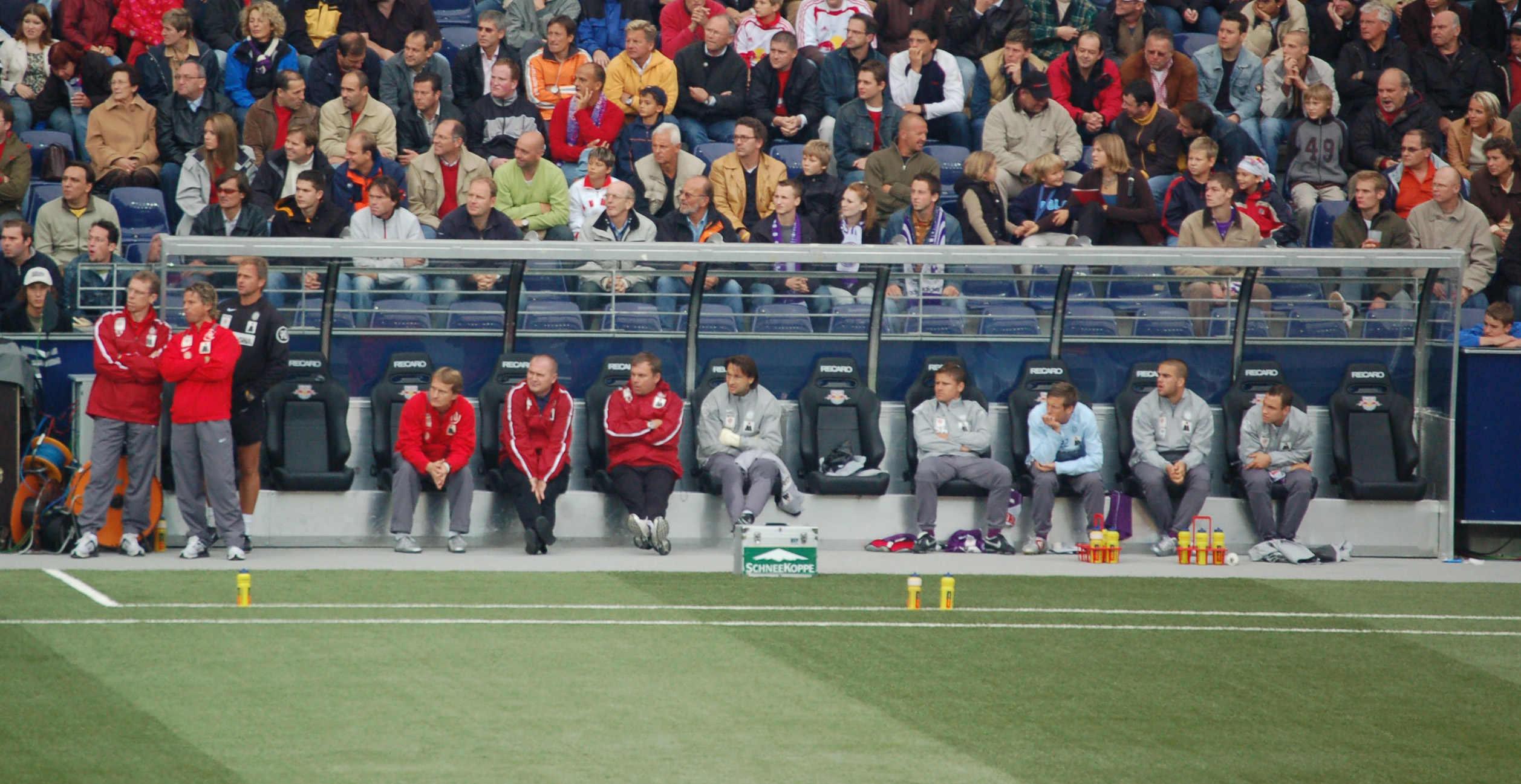Technical area on:
[Wikipedia]
[Google]
[Amazon]
 The technical area in
The technical area in
 The first football stadium to feature a dugout was Pittodrie Stadium, home of
The first football stadium to feature a dugout was Pittodrie Stadium, home of
Laws of the Game, FIFA
 The technical area in
The technical area in association football
Association football, more commonly known as football or soccer, is a team sport played between two teams of 11 Football player, players who almost exclusively use their feet to propel a Ball (association football), ball around a rectangular f ...
is the area at the side of the pitch which the teams' managers, other coaching personnel, and substitutes are allowed to occupy during a match.
The technical area usually includes a seated area referred to as the "dugout" or "bench" as well as a marked zone in front of it and adjacent to the pitch.
History
 The first football stadium to feature a dugout was Pittodrie Stadium, home of
The first football stadium to feature a dugout was Pittodrie Stadium, home of Aberdeen
Aberdeen ( ; ; ) is a port city in North East Scotland, and is the List of towns and cities in Scotland by population, third most populous Cities of Scotland, Scottish city. Historically, Aberdeen was within the historic county of Aberdeensh ...
, where dugouts were introduced by trainer Donald Colman in the 1920s. He wanted a place to take notes and observe his players (especially their feet, hence the reason for being set partially below pitch level) without sacrificing the shelter provided by a grandstand.
The defined space of the technical area was established in the notes section of the Laws of the Game in 1993.The Technical AreaLaws of the Game, FIFA
Operation
The technical area is marked by a white line, varying in size but always "1m (1yd) on either side of the designated seated area and extend ngforward up to a distance of 1m (1yd) from the touch line", according to the Laws of the Game. Managers may not cross the line during play, which restricts them from approaching the pitch. In 1999, FIFA put the fourth official in charge of enforcing this rule, although substitutes may warm up along the side of the pitch.References
{{reflist Association football terminology Laws of association football